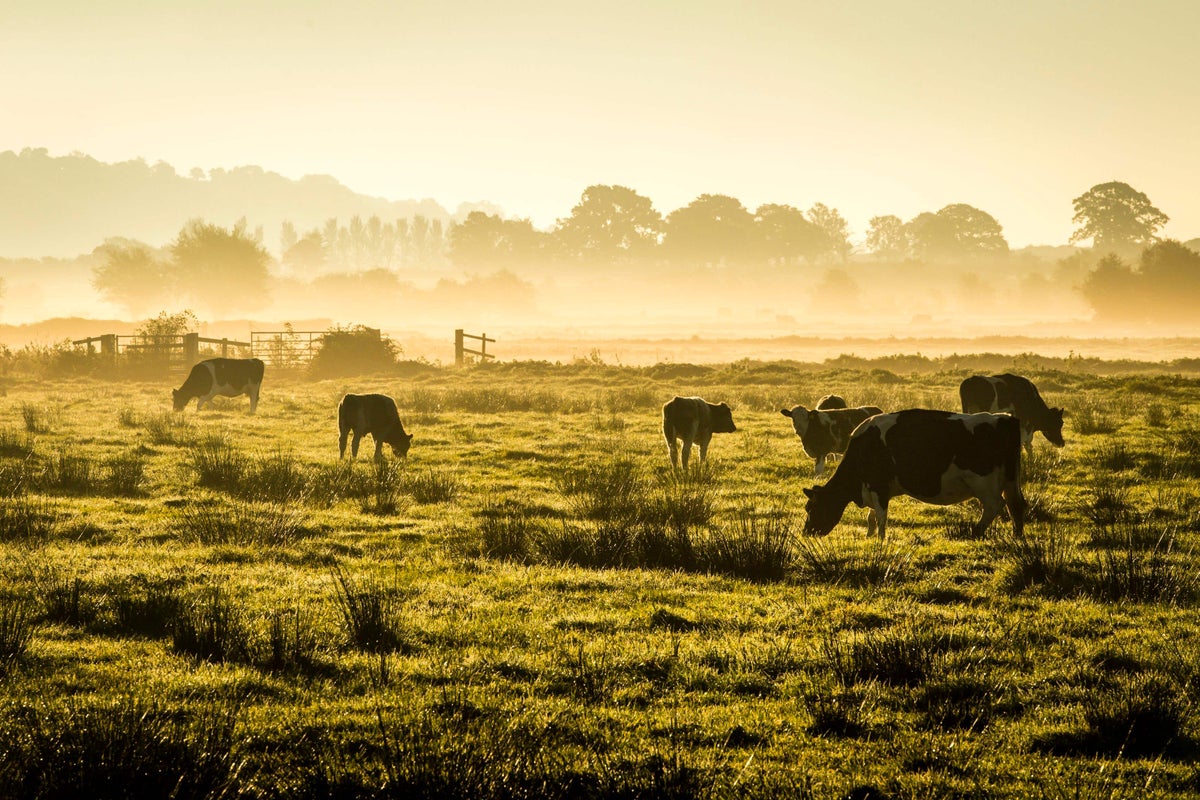
The Government is not properly prepared for the growing risk from animal diseases and would struggle to cope with a major outbreak, the spending watchdog has warned.
Animal diseases such as bird flu, bluetongue and African swine fever can pose serious threats to England’s farming sector, food security, human health and wildlife, and costs associated with an outbreak can spiral into the billions of pounds, a report from the National Audit Office (NAO) has said.
The 2001 outbreak of foot and mouth cost an estimated £13.8 billion in today’s prices, with farming businesses devastated, thousands of animals slaughtered and the countryside shut to recreation and tourism.
And 7.2 million birds have been culled in avian flu outbreaks since 2020, which have also devasted wild seabird colonies across the UK.
But while the Department for Environment, Food and Rural Affairs (Defra) and the Animal and Plant Health Agency (APHA) has worked hard to tackle recent outbreaks, the NAO said it is likely the public bodies would struggle with a more severe outbreak or concurrent serious outbreaks.
A report from the NAO warned that long-term resilience to disease in livestock was being undermined by officials having to focus on increasingly frequent outbreaks – and there was no long-term strategy for improving the situation.
There are significant gaps in contingency plans for outbreaks, and plans for specific diseases have not been updated with the latest findings, with its strategy for coping with foot and mouth disease not updated since 2011.
Just 5% of live animal imports are undergoing physical checks, all taking place at the final customer destination, against a target of 100% checks at border control, raising the risk of “exotic” diseases arriving from abroad.
A fifth of vet roles are vacant at the APHA, and there is a “very high” risk of site failure at the Government’s key animal science lab at Weybridge, the report said.
The report said that while a £2.8 billion redevelopment programme at Weybridge was now on track, the main new laboratory facilities will not be delivered for another 10 years.
The report found Defra thought there was a “very high” risk of an outbreak to which it would be unable to respond effectively, but it lacks a long-term strategy and action plan for improving resilience to animal disease, and many of its activities are reactive rather than part of a coherent plan.
A comprehensive livestock movement tracing system – crucial once infection is detected – is lacking, with the costs of an upgraded scheme now estimated at £563 million amid concerns over delivering it in the face of rising costs and funding constraints, while there are also issues with vaccine supplies.
Gareth Davies, head of the NAO, said: “Defra has assessed that the risk of an outbreak to which it would be unable to respond effectively is above the level it considers tolerable, but it has not determined a way to reduce this risk.
“A long-term strategy and action plan are urgently needed, to protect national economic resilience as well as food security, human health and rural communities.”
Sir Geoffrey Clifton-Brown, chairman of the parliamentary Committee of Public Accounts, said: “Despite some good work to identify new threats, Government’s preparations for a future major outbreak are being hampered by a lack of capacity, skills and long-term strategy.
“Government’s failure to carry out checks on animal imports is also threatening biosecurity at the border.
“Resilience to a severe outbreak has not been tested in recent years, but the threat remains ever increasing as our livestock become more susceptible to disease.
“Without changes to the current operating system, there is a very real risk that Government would not be able to respond effectively.”
Biosecurity Minister Baroness Hayman said: “This Government’s commitment to maintaining the country’s biosecurity in the face of the mounting risks of disease is unwavering – we will do whatever it takes to protect our farmers and economy.
“We took immediate action to ban personal imports of meat and dairy from Europe after a wave of foot and mouth cases on the continent and, after years of underinvestment, we are investing £200 million into a new National Biosecurity Centre.”
UK’s most hazardous building still leaking radioactive water, MPs warn
UK faces ‘water rationing like Mediterranean’ without new reservoirs – minister
Natural England boss reveals concern over budget for nature restoration
Kent landscape that inspired Dickens declared nature reserve
Tories must reject climate change ‘luddites’ on left and right, warns Cleverly
Elon Musk’s Tesla ‘not interested’ in manufacturing in India, minister says







